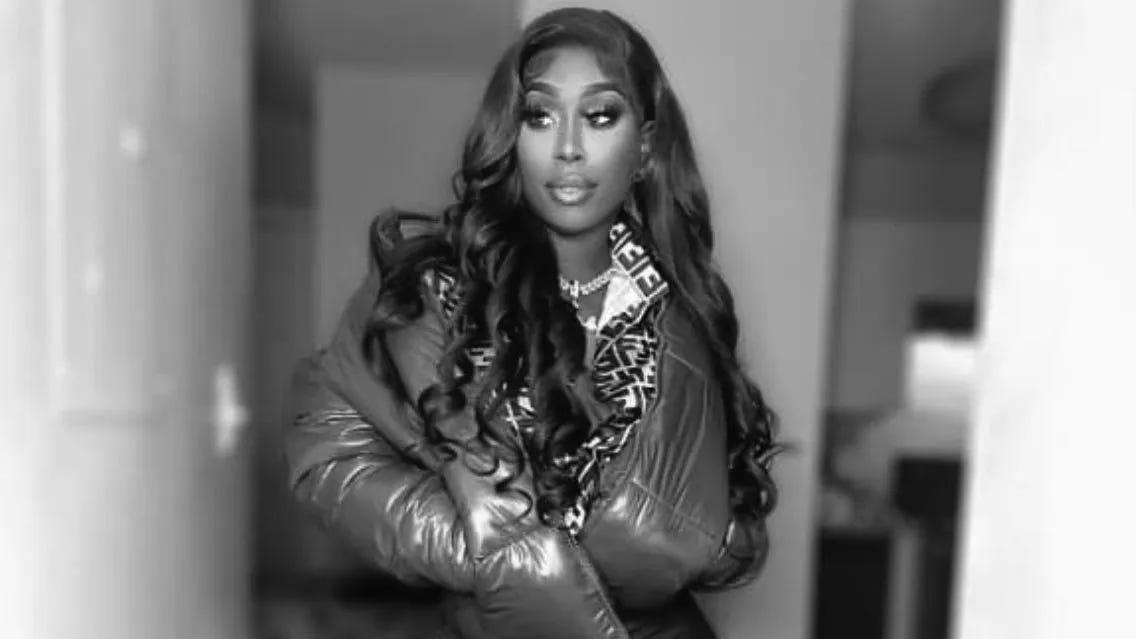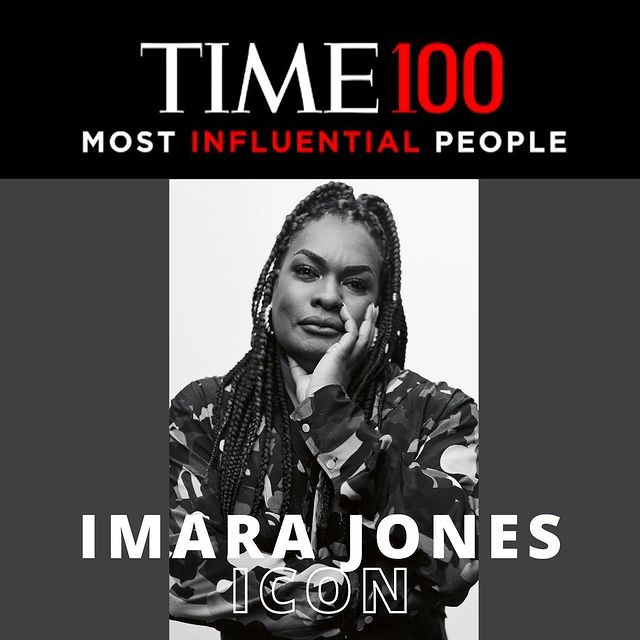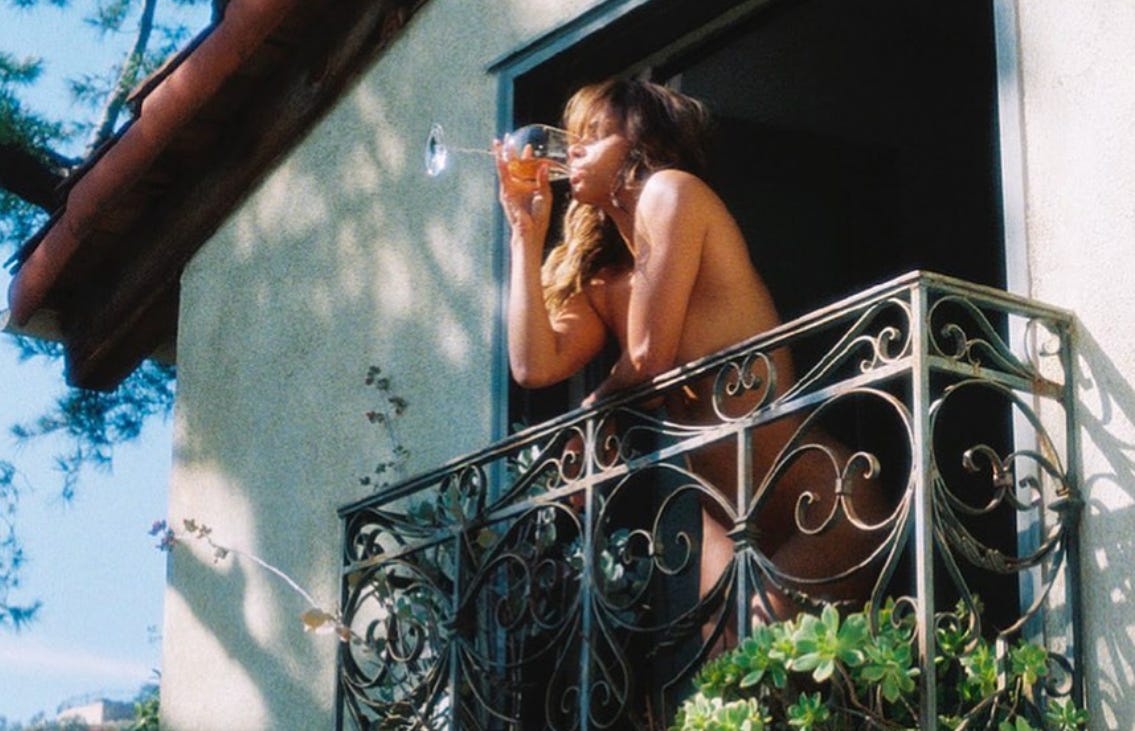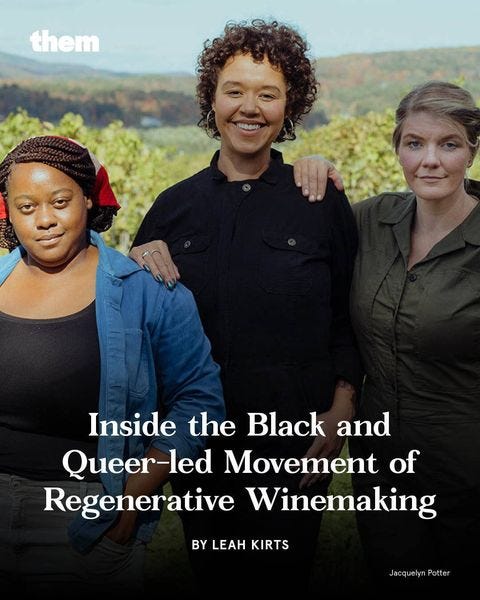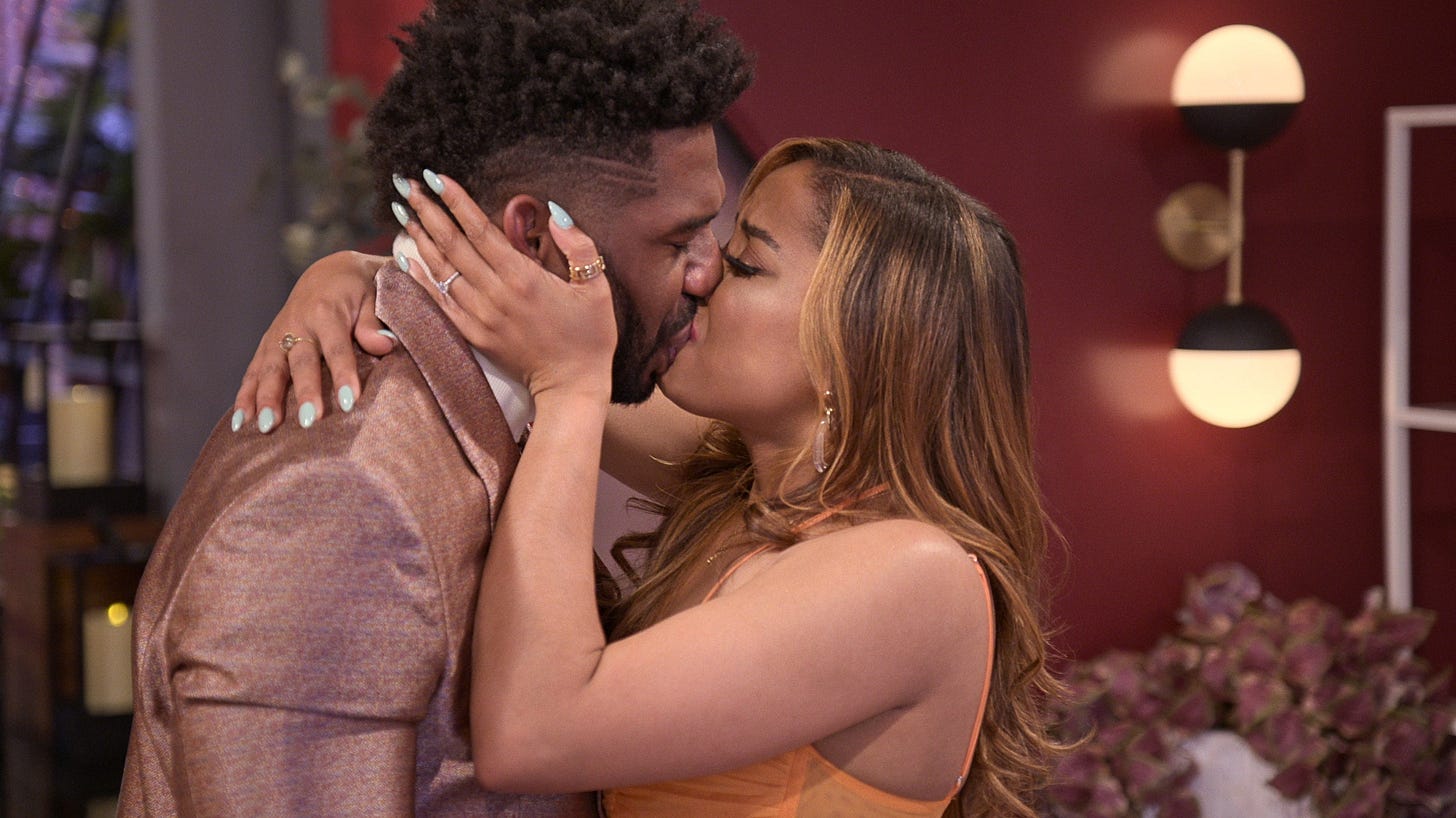The murder of Ashley Burton, Philly students celebrate Afro Day, and a letter to hypercritical Black men
"Driven by dreams of hairstyling and makeup artistry, Ashley Burton uprooted her life in South Carolina and moved to Atlanta, the epicenter of Black beauty."
The Murder of Ashley Burton and the Black Trans Community’s Ongoing Fight for Survival
Driven by dreams of hairstyling and makeup artistry, Ashley Burton uprooted her life in South Carolina and moved to Atlanta, the epicenter of Black beauty. “Jus a bad chick on the rise,” reads her Instagram bio. Below that, a cobalt-colored “A” matching the vibrant streak in her loose curls adorns the minimalist cake celebrating her 37th birthday. The pastry rests on her palm in the foreground of her last photo, posted on March 23. Twenty days later, police would find her body at her apartment complex.
The report states that Ashley was shot in her home, and fatally once again outside, possibly indicating a domestic-related shooting involving someone she knew. Her family reportedly told Fox 5 that they didn’t believe her being a transgender woman had anything to do with what happened, describing her as “very comfortable in her own skin and in the LGBTQ community.”
At the same time, her cousin Ivory Carter, told 11 Alive that she was “tired of all these incidents with transgender women just being pushed up under the rug," Ivy explained. "We are human beings." Ashley is at least the ninth trans or gender conforming person and the fifth Black women whose violent death has been reported in 2023, PGHLesbian reports.
I first learned about Ashley from renowned activist and writer Raquel Willis’s tweet.
“Black trans women faced immense brutality before this era of anti-trans legislation,” wrote Raquel. “This is what the fight against hate has to center—keeping us alive and ensuring we are safe, secure, and able to chart our own destinies. #RestInPower Ashley Burton.”
“Too many people ignore how the hate stoked by conservatives, ignorant celebrities, and average transphobes leads to more violence for Black trans folk,” she continued. “The dominant conversation about who is most impacted is constantly whitewashed.”
Included in these people are journalists and newsroom leaders, as asserted by an open letter protesting The New York Times’ coverage of trans people. As Raquel emphasizes, Burton was slain amid an ongoing wave of laws banning gender-affirming care for minors—laws bolstered by campaigns that cite that very coverage in court—within one of the deadliest epidemics of violence in the United States. Though the editorial standard concerns raised in the letter have yet to be directly addressed by publisher A.G. Sulzberger or other Times leaders, the paper published a report titled “How a Campaign Against Transgender Rights Mobilized Conservatives” on Sunday. Critics called out the journalists who wrote the report (who’ve both been previously accused of anti-trans biases) and their employers for failing to reach out to or reference any trans and gender nonconforming journalists or activists who has been covering the growing anti-trans climate for several years now, as well as failing to admit its complicity in this campaign.
I highly recommend reading through Raquel’s Twitter thread on the matter, and also award-winning trans journalist Imara Jones’ thread and work on these topics. Founder of the nonprofit organization TransLash Media and host of The Anti-Trans Hate Machine podcast, Jones was recently recognized in TIME magazine’s 100 most influential people list.
Related:
Killing of Black transgender woman in Milwaukee prompts calls for justice, ABC News, Kiara Alfonseca
4 Black Trans Women Who Speak Truth To Power, EBONY, Savannah Taylor
Flipping the Script on Stories of Black Trans Women, The Advocate, Neal Broverman
Why Black Trans Women Are Essential to Our Future, TIME, Imara Jones
For The Men Who Criticize Halle Berry And All Black Women
HuffPost, Dustin J. Seibert
Earlier this week, the 56-year-old actor posted a tasteful nude on social media, and men upholding the patriarchy had something to say about Berry and her body.
“Men telling women how they should comport themselves has been a cornerstone of the patriarchy since time immemorial,” writes Dustin J. Seibert. “But, unless I’m imagining things, it seems there’s been a recent uptick in Black Men on the Internet with Opinions on Black Women™️.”
It’s nighttime and thanks to your astrophile friend, you can’t unsee the Big Dipper for the seemingly isolated stars it once was. In this timely essay, Dustin is said star-gazing friend, his appeal threading together recent backlash against famous Black women with weighty evidence of the unique misogny, or misogynoir, facing all Black women on social media today and its creeping evolution. He flexes his pitch-perfect humor to unpack the dislike, contempt, and ingrained prejudice often disregarded in the larger “Are Men Okay?” discourse, which consistently overlooks the “ash-laden podcast brothas” of the growing, highly influential Black manosphere community.
Powered by PornHub, the ghost of Kevin Samuels and check cashing stores, these men draw from the little-you-know-what energy espoused on podcasts hosted by Black men that exist solely to bash Black women as ammunition to spout their unsolicited opinions on social media and in comments sections about women with whom they have zero relation.
Black women have been shouldering coverage of this uptick for a while now, making equally strong and compelling claims, so Dustin’s spotlighting the trend isn’t as much groundbreaking as it is refreshing and remarkable (a fact he acknowledges by directly addressing cishet Black men throughout the piece).
Related:
My Brush With the Black Manosphere, Nicole Young, ELLE
“My Brother Is So Far Gone”: How Male Influencers Turned The Men In These People’s Lives Toxic, Ade Onibada, BuzzFeed
Before the manosphere were the lost, lonely men of ‘Death of a Salesman,’ ‘Topdog/Underdog,’ and ‘The Piano Lesson,’ Soraya Nadia McDonald, Andscape
Inside the Black and Queer-led Movement of Regenerative Winemaking
them, Leah Kirts
From resisting the whitewashing of sustainability, to busting an industry's ancient binaries, Kalchē Wine Co is a new and vital voice in the world of regenerative winemaking.
Sure, I love a juicy riesling or gewürztraminer, a funky orange, a smooth red. I’ve been on a bunch of fancy, fun wine tours, and have an excess of corks housed in a random glass vase. Still, I know very, very little about wine, about how it’s made and how it’s industrialized. So to say this article on the Black- and queer-worked and owned Kalchē Wine Cooperative schooled me isn’t saying much.
BUT, I’d wager that the wealth of information on the racism, sexism, and colonialism deeply embedded in big wine would dazzle even the most advanced sommeliers. Leah gets into all of that in this illuminating piece on a radical movement centering diversity and sustainability (via hybrid and indigenous grapes, among other facts) and disrupting whitewashed Eurocentric traditions. My favorite parts? The juicy bits that explain how specific elements of this industry’s tradition obscure the existence of trans nonbinary people and illustrate intimate parallels between queer experiences and this complex practice.
Land ownership is a hurdle for people who are not born into wealth, especially for Black Americans who represent less than one percent of the country’s landownership and winemaking. Land theft is at the core of white-owned acreage and the wholesome branding of ‘family-owned’ wine estates masks what Lambright deems land hoarding.
Related:
What It’s Really Like to Be a Black Wine Professional, Wine Magazine, Tiffany Ezinwa Onyejiaka
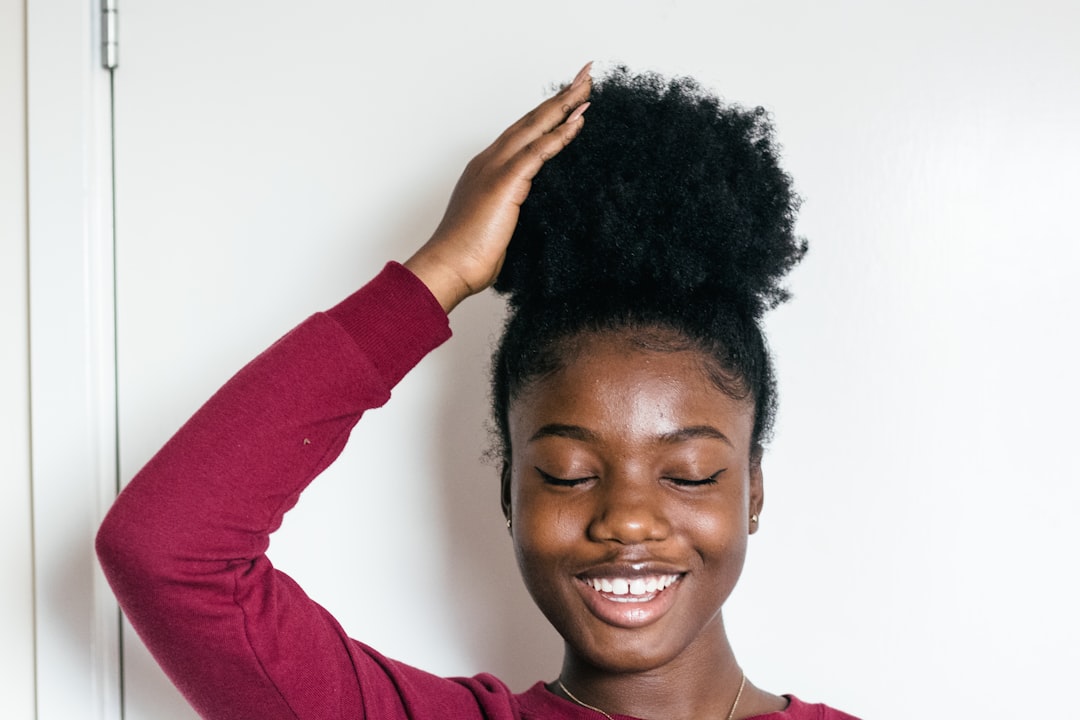
These Philly students celebrated Black hair with a homegrown holiday. Here’s how Afro Day was born
The Philadelphia Inquirer, Kristen A. Graham
“Our hair isn’t wild, it isn’t crazy,” said Amia Harris, a 10th grader at Northeast High. “It’s beautiful.”
When I come across a story that involves a school, Black students, and hair, it’s typically about hair discrimination—an administrator kicking out a young girl for her braids, a referee cutting a teen wrestler’s locs, a cosmetology teacher alienating a student with natural hair, a South African all-girls school allegedly requiring straightened strands. So this Philadelphia Inquirer story was a breath of fresh air.
Spurred by a conversation in teacher Keziah Ridgeway’s African American history class, [Kadedra] Mattis and her classmate Amia Harris dreamed up Northeast’s first Afro Day, with several dozen students simply wearing their hair as is, then meeting up for a photo to commemorate it.
Throughout the piece, Northeast High School sophomore Kadedra and her classmates reflect on the empowering experience of embracing their natural hair during a day they originated while in Keziah Ridgeway’s African American history class. Harmony-Spirit Morrison even took down her braids for the occasion. “I like my hair, but I’m scared to wear it out sometimes,” she told reporter Kristen A. Graham.
Her fear is well-founded, as Black children and adult still face hair discrimination in school and the workplace. (I reported on this history and its current ramifications in a 2021 feature story for Businessweek Magazine, highlighting the Crown Act and similar Black women-led legal and advocacy campaigns to protect Black hairstyles nationwide.) And while this Inquirer story might seem like a heartwarming human interest story, it’s also a political one: only 20 states have outlawed Black hair discrimination.
Related:
The Ritz London applicant told 'Afro-style' hair was banned, BBC, Jess Warren
White Teacher Repeatedly Called Black Girl’s Hair ‘Ethnic’, Lawsuit Says, Chicago Defender
25% of Black women say they were denied job interviews because of their hair, survey says, NBC News, Claretta Bellamy
How to Persuade White Lawmakers to Protect Black Hairstyles, Businessweek, Patrice Peck
Tiffany and Brett of ‘Love is Blind’ give Black love a rare win
The Washington Post, Helena Andrews-Dyer
Why have Tiffany and Brett — Brettany? — become a "love conquers all" rallying cry?
As someone who only tapped in to “The Bachelor” and “The Bachelorette” for their first Black leads, I’m not a big dating show viewer. But the turbo-paced “social experiment” that is “Love Is Blind” hooked me, and for the first three fascinating seasons I became fully invested in the romantic journeys of several strangers. A recent solo vacation throughout Japan trumped any chances of my tuning in to season four, but I’ll be doing so soon after learning that the series had its first successful Black love story. As Helena reports in her article, Tiffany and Brett’s happy ending is an anomaly in media, particularly media catering to white audiences.
“My feelings are still hurt over the way Megan Thee Stallion was treated. My feelings are still hurt over how Meghan Markle was treated. In this climate where the vitriol against Black woman never seems to cease, it’s lovely to see a Black man fall head over heels in love with us on TV,” said [Tia] Williams.
From “Married at First Sight UK”’s Paul C. Brunson to TikToker Rikkii Wise, Helena spoke to a wide range of folks, including Black women romance authors, love and relationship experts, and a “Love Is Blind” superfan to demonstrate why this union “hit different.” “Cliche or not, representation matters, say experts and fans of the show and the romance genre in general,” she writes. “Seeing yourself reflected in the media you consume is important because it helps validate your very existence.”
What I’m watching:
Two women were denied medical care due to Florida's abortion ban
MSNBC
“Anya Cook and Shanae Smith-Cunningham join Katie Phang to share their experiences of being diagnosed with a life-threatening condition during their pregnancies. Despite requiring medical attention, they were sent home without any help as their doctors feared Florida's abortion law.”
(h/t Jessica Valenti of Abortion, Every Day)
South African older women splash their way to health in Soweto pool
Reuters
“At a public pool in South Africa's township of Soweto, novice swimmers in their golden years are splashing to better health. More than 40 older women, who have never previously had a chance to learn how to swim, visit the pool weekly to learn and improve their health.”
'The Angry Black Girl And Her Monster' Trailer: Laya DeLeon Hayes, Denzel Whitaker And More Star In A Timely Take On 'Frankenstein'
Shadow & Act, Monique Jones
“While we’ve seen Frankenstein adapted over and over, as well as having seen other projects inspired by the story over the years, The Angry Black Girl and her Monster brings a fresh and timely perspective to a story about the nature of life.”
More stories that caught my eye:
“In counties with more Black doctors, Black people live longer, ‘astonishing’ study finds,” STAT News, Usha Lee McFarling
“The new study found that Black residents in counties with more Black physicians — whether or not they actually see those doctors — had lower mortality from all causes, and showed that these counties had lower disparities in mortality rates between Black and white residents. The finding of longer life expectancy persisted even in counties with a single Black physician.”
Jalen Hurts Makes History With $255M Contract Extension Led By Black Woman Agent Nicole Lynn, ESSENCE, Jasmine Browley
“According to Zippia, the most common ethnicity among sports agents is White, which makes up 68.6% of all sports agents. Additionally, women make up just 23% of U.S. NFL agents, and of that, only 10.4% are Black (men or women). With that, it’s no surprise Lynn has dealt with significant challenges navigating the space, particularly being underestimated.”
“I moved to the US from Kenya. I never fully realized I was Black until I had a son,” CNN, Faith Karimi
“With my son’s birth, the dynamic of my life in America had changed. I could no longer observe issues of race as a bystander from another country who wasn’t sure where she fit in the conversation. I was the mother of a Kenyan American son, a Black son.”
She trains Black doulas to close the maternal mortality gap, The Well, Nicole Moorefield
“The doula is there to be the gatekeeper, to try to calm patients’ fears while educating them, to understand what their rights are and how they should be cared for. A patient’s opinions and thoughts should be respected. A doula is not there to make medical decisions, but she’s there for her patients. They know that their bodies — and thoughts, concerns and wishes — should be valued. Historically that has not happened.”
“A Black family says they ‘whitewashed’ their home to get a higher appraisal. They’re not the only ones By Nicquel Terry Ellis,” CNN, Nicquel Terry Ellis
“White says she wants Black homeowners to know their options when appraisals come in low. She advises her clients to appeal the first appraisal and if that doesn’t work request a second appraisal. If nothing changes, White says homeowners can file complaints with the Department of Housing and Urban Development, the state appraiser board, or the Consumer Financial Protection Bureau.”
Meet the Black Woman Whose Fertility Company is Redefining Birth Possibilities, 21Ninety, Sughnen Yongo-Okochi
“In my experience, few people looked like me in the waiting rooms. It was mostly a white-dominated space, including the medical staff. This lack of representation can make it difficult for Black women to feel seen and understood in their struggles with infertility.”





